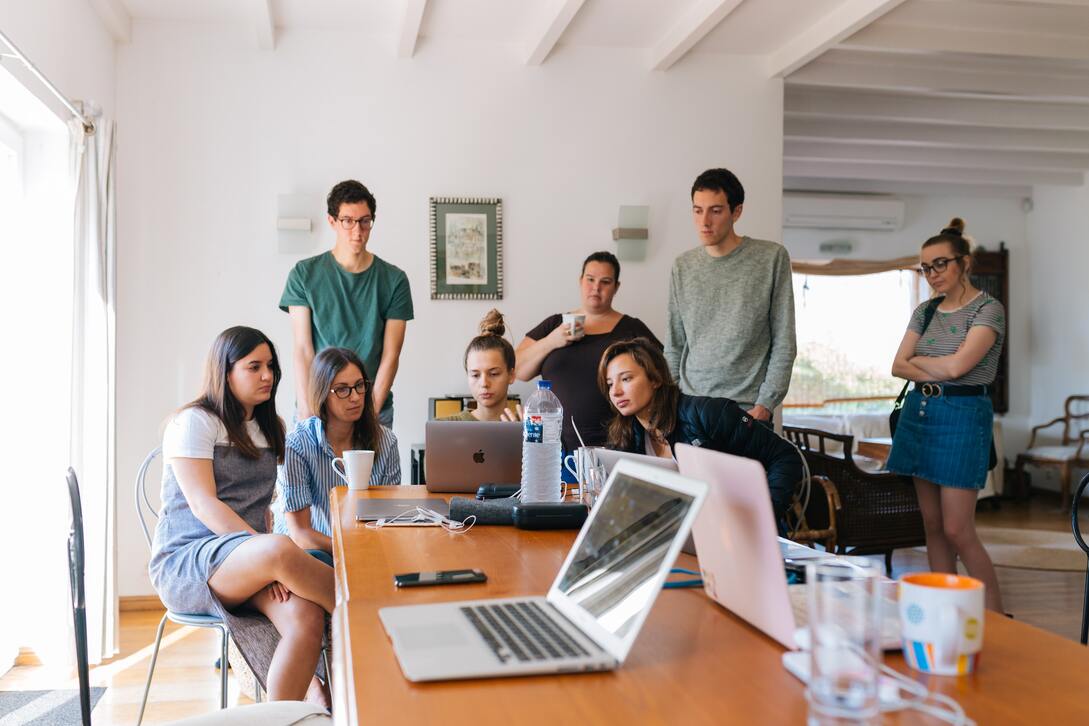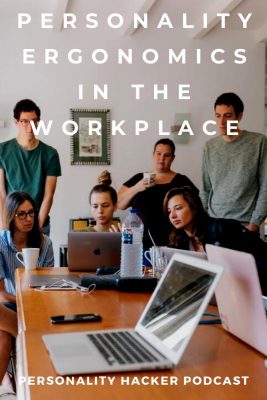Download Episode Here – right click link and select “Save Link As…”
In this episode Joel and Antonia discuss personality ergonomics in the workplace and how to design a peak performance environment.
In this podcast on ergonomics in the workplace you’ll find:
- Businesses, organizations and schools are now optimizing the ergonomics in their workplace.
- You can see the changes by looking at their chairs, table and important work equipment like mice and keyboards.
- It has become evident that people get more productive if they are able to work comfortably.
- There’s much focus on physical ergonomics but not about personality ergonomics.
- Your flow state rejuvenates you. It helps activate your driver process so even if you feel a bit tired, you feel refreshed and fulfilled.
- Imagine if you could harness a person’s flow state energy into a job or career and they leave work feeling refreshed and not tired.
- When you work out of your flow state, and this is when you go into your inferior process (3-year old), you feel very tired and drained at the end of the day.
- We end up customizing and optimizing things when we are exposed to different options to choose from.
- The concept of ergonomics is making people feel happier.
- It’s all about understanding the people who work for your company and how you can bring out their flow state. This will help them feel rewarded and fulfilled while doing their jobs. They’re always gaining energy at work because they’re at their best.
- Even though we don’t have to change the job roles and description or hire someone for a certain type, we can at least assume that once the person is in that position, their environment is conducive for their flow state.
- Accuracy people are more focused about data, so anything that’s very emotional like workplace dramas and politics will throw them out of their flow state.
- We’d like you to start thinking about personality ergonomics in the workplace, school and home.
- How do you feel that your business, career or the school you attend? Is your home setup to the personality involved in that place and how can it be done even better based on those personalities?
To subscribe to the podcast, please use the links below:
Subscribe with iTunes
Non iTunes Link
Download The Android App
Subscribe on Soundcloud
Subscribe with Stitcher
If you like the podcast and want to help us out in return, please leave an honest rating and review on iTunes by clicking here. It will help the show and its ranking in iTunes immensely! We would be eternally grateful!
Want to learn more?
Discover Your Personal Genius
We want to hear from you. Leave your comments below…



Share:
Podcast - Episode 0066 - Are You Using Cognitive Biases
Podcast - Episode 0068 - Developed vs. Undeveloped Decisions
12 comments
I started listening to this podcast while going on a walk, and I almost had to cut my walk short because I so badly wanted to take notes. I’m finishing up my masters degree in Elementary teaching; one of my big goals is to differentiate my classroom experience to each student. This has given me a lot of information to consider. The description of Authenticity’s work environment fits me very well (I’m an INFP) as does Exploration’s, and I can’t wait to share this with my wife (ENFJ).
Just wondering, was Effectiveness (Te) covered in the podcast? Did I miss it?
Thanks again.
Thank you for an interesting podcast!
I definitely believe the principles you talked about in this podcast make a difference in our homes (which you touched on near the end when you mentioned thinking about where to put dishes in the kitchen) as well as our workplaces.
My husband and I have lived in 5 different homes in our 10-year marriage and it is so interesting to think about how we’ve, with our different temperaments, acclimated and accommodated to each of those environs.
I am an INFJ and I put a great deal of thought in to a space I am organizing before I even touch it. I think about what the purpose of that space is and how my husband or I will use it. For repeating tasks/routines I will take time to write down the best, most efficient way to do something and organize the space/tools accordingly. This takes up more time up-front, but once I’ve figured it all out things become rote and my energy is freed to do other more interesting things.
For example, I have a large lazy-susan in our bathroom cabinet. On it I’ve placed the products I need to get ready in the morning and to get ready for bed, all in the order I use them. For some reason I LOVE that lazy-susan; I love the circular nature of it and how it spins; I love not having to think “Did I already put on deodorant?”.
Our current home’s kitchen does not open up to the living room space and I HATE that. I really miss the ability to “look out” and see everyone and everything in our “public space” at once. I wonder if that is related to you sharing how INJs feel better with their desks pointing towards a door in order to anticipate interruptions. I think it might also be related to the Harmony aspect of my temperament… wanting to make sure everyone is okay and wanting to feel connected.
Years ago I was criticized on one of my first job performance evaluations as a public health nurse for taking too much time to organize my workspace. I had spent time organizing my desk and supplies I would use during home visits and clinics. The criticism devastated me and left me feeling shamed. I was left believing I was not as productive as I should have been and took that to an extreme of doubting my value as a nurse. Of course, everyone else got to benefit from the organizational systems I had put in place. :)
Fast forward to my last job where I was able to assertively ask for (and got) hours where I would be the only person in the building during half my shifts. My job entailed a lot of client contact over the phone and lots of interruptions via email and phone. I knew in order to be successful I needed all other distractions removed… and it worked. The other half my shifts I was engaging (in real life) with people who were attending week-long seminars and I got my “people contact” bucket filled.
In looking at the various jobs I’ve had over the years, here’s the magic combination that works for me as an INFJ… lots of total solitude and control over my private physical environment which I use to get the nitty-gritty done… balanced with a hefty dose of touchy-feely contact with people which reminds me why I’m there to begin with.
Thanks again for this podcast (as well as all the podcasts you do)!
When it comes to the school system my hubby and I have spoken about this quite a bit. Growing up we both had a rough time in the public school system. Wouldn’t it be neat if kids could take a fun assessment test before each school year to determine their personality type? Based on the results a person or computer system could plug them into the right class with the right teachers and set up etc. This would allow kids to be in classroom that empowered them. Also, it would educate teachers and help them respect and honor each child’s unique styles instead of negatively categorizing them. Anyway, I love all the ideas shared on here. Love the concept!
Thank you for sharing your feedback Su.
Thank you Caroline for the comment AND for sharing with your friends and family who you think will love the podcast.